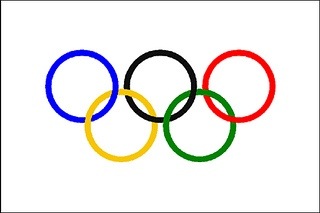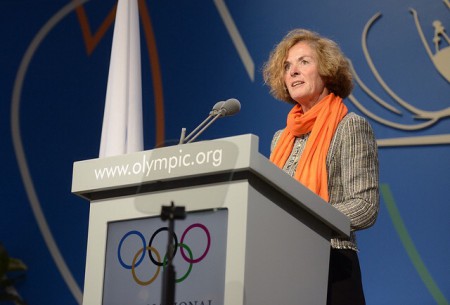The International Olympic Committee (IOC) Coordination Commission saw solid progress being made during its eighth visit (23 to 25 February) to the 2016 host city of Rio de Janeiro. Sports venues are taking shape and numerous engagement initiatives like ticketing, volunteering and the Olympic Torch Relay are up and running. These positive developments come at a time when the Rio organisers are entering the operational phase of the project. This stage of preparations will see Rio 2016 and its partners increase their activity significantly, as they reach a new level of detail in their Games planning, while simultaneously delivering 21 test events.

https://farm3.staticflickr.com/2435/3945252406_a9ef27b57d_o_d.jpg
The Commission was also joined for part of its visit by IOC President Thomas Bach, who led a delegation, including Commission Chair Nawal El Moutawakel, to meet Brazilian President Dilma Rousseff, who again pledged full support for the Games from “every level and ministry of [her] government as well as from State and City authorities.” Bach also participated in a meeting with Rio State Governor Luiz Fernando Pezão, Rio de Janeiro Mayor Eduardo Paes, and Brazilian Minister of Sports George Hilton, and joined the Commission on a tour of the Barra Olympic Park.
Speaking at the end of the visit, Commission Chair El Moutawakel said: “We were pleased to be able to show President Bach that good progress has been made on the Rio 2016 Games. The advancements made on both the Barra and Deodoro Olympic Parks were very encouraging, with both areas on track to leave fantastic legacies to the people of Rio and the athletes of Brazil. However, the Rio team is now entering the most intense phase in the preparation for the Games, as they reach a new level of detail while planning numerous test events.”
She continued: “With 21 test events planned for this year and a significant number of the world’s best athletes coming to Rio to try the venues, Rio 2016 will have a lot to deliver while still preparing for the Games. We were pleased to see that Rio and its government partners have put in place structures that will allow them to deal with what will be an intense year ahead, filled with thousands of details that will need to be dealt with before the Games. They will also need to ensure that the venues are delivered in time to host the test events. The golf course, velodrome and equestrian cross-country venues all have very aggressive timelines that will need to be met over the coming months.”
The participation of the government partners’ leaders in the meetings with the Commission underlined the support of Brazil for the Games, and the Commission thanked each of them for their commitment to the project. This unity shown by the government partners with the Rio 2016 Organising Committee pleased the IOC group, which emphasised the importance of having an integrated approach to the delivery of the Games, especially during a period which is as intense as the coming 17 months. This interaction will be facilitated now that all three levels of government will have a member on the Organising Committee’s board, leading to greater transparency and cooperation.
During the meetings, the Commission highlighted a number of areas of focus for the local organisers, including accommodation and transport, where a significant amount of work needs to be completed this year to ensure that the Games experience is delivered at the highest level for the athletes, participants and spectators.
The President of the Rio 2016 Organising Committee, Carlos Arthur Nuzman, said: “It was our pleasure to receive the IOC President, Thomas Bach, together with the members of the Coordination Commission. As we move at high speed from the planning to the execution phase of the project, we are dedicated to delivering on our vision for the Games. In a project of this magnitude, some obstacles will always exist, but with the help of our partners at the IOC and the three levels of government, we will overcome them. Our joint commitment to deliver excellent Games with memorable celebrations is stronger now than ever.”

The Commission was pleased to hear from the Rio organisers that support for the Games remains strong across Brazil and that a number of engagement initiatives had been launched since its last visit, such as ticket sign-up, volunteer recruitment, the mascots and the Olympic Torch Relay. This nationwide engagement will now increase over the coming months, with ticket sales expected to begin in late March, the volunteer programme to enter its training phase, torchbearer applications to open later in the year, Rio’s cultural programme to get underway, the Rio education programme to continue to grow across the country, test events to bring sport to the host city, and the one-year-to-go celebrations to give us all a glimpse of the atmosphere that can be expected in 2016. These initiatives will give all Brazilians the opportunity to participate in the Games, just as in 2016 when events like the marathon, triathlon, rowing, road cycling and marathon swimming will give every Brazilian a chance to see the Olympic athletes in action.
During its meetings, the Coordination Commission also received updates from the organisers and their partners in areas such as athlete and National Olympic Committee (NOC) services, sport and International Federation services, media operations, spectators, transport, test events, marketing, technology and the Paralympic Games.
The Commission will return to Rio de Janeiro in August this year.








